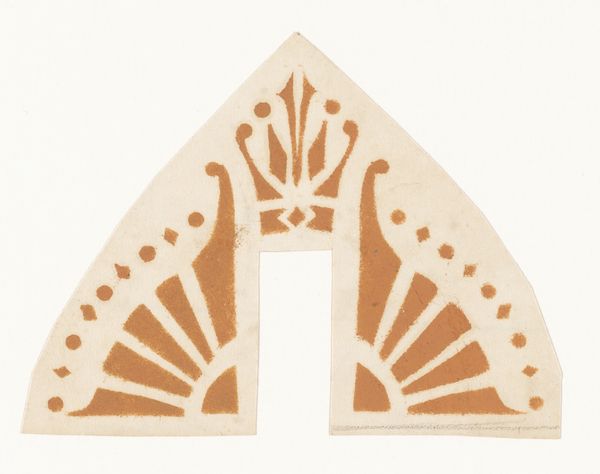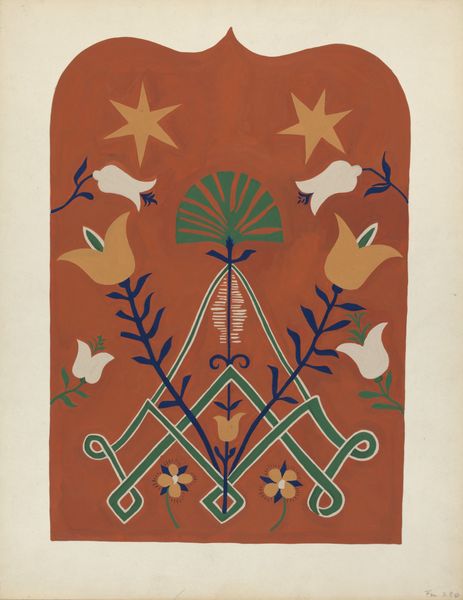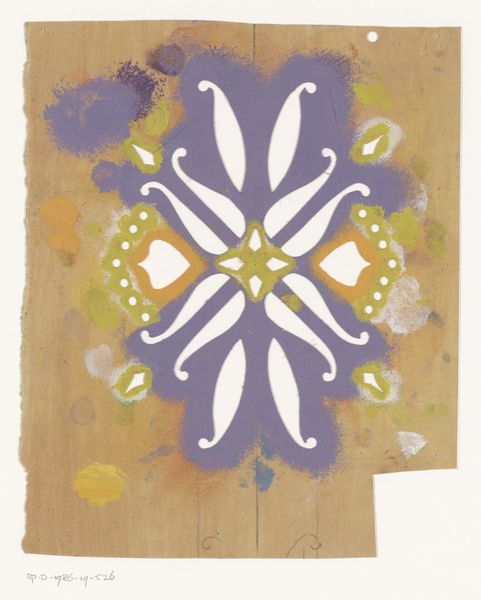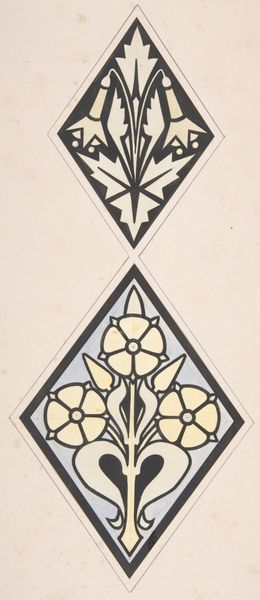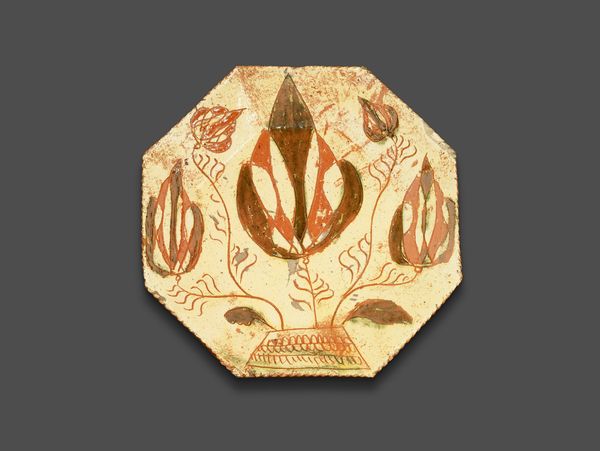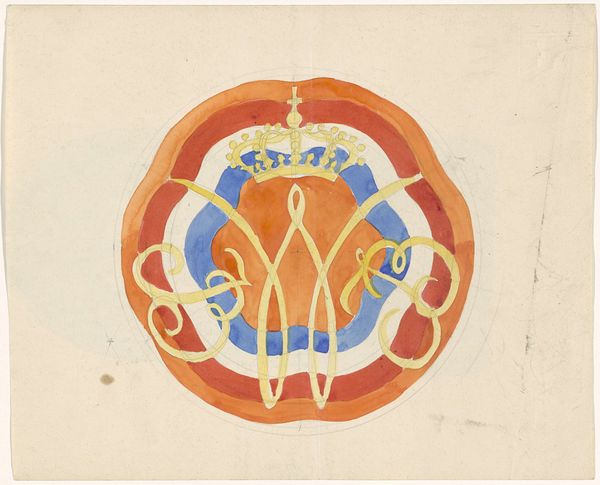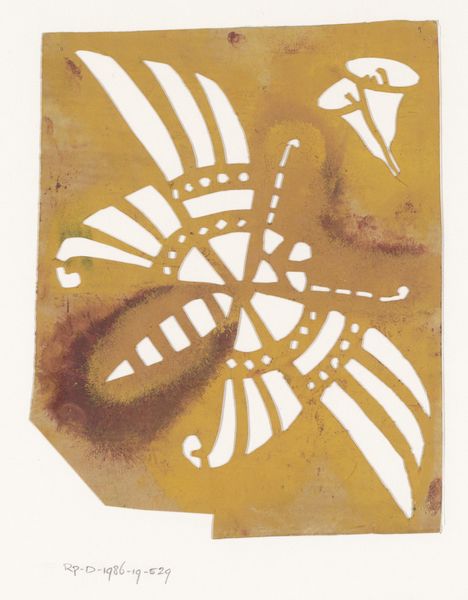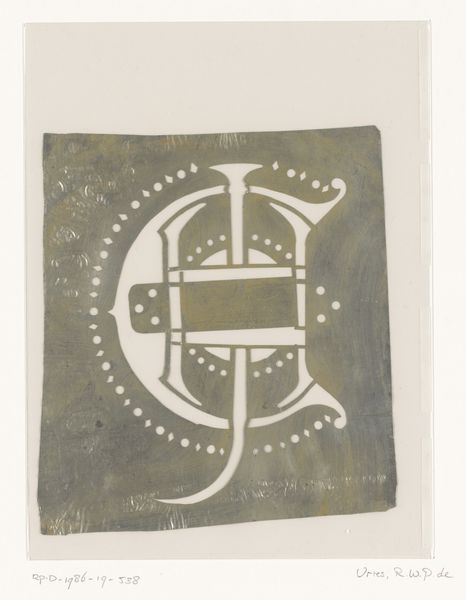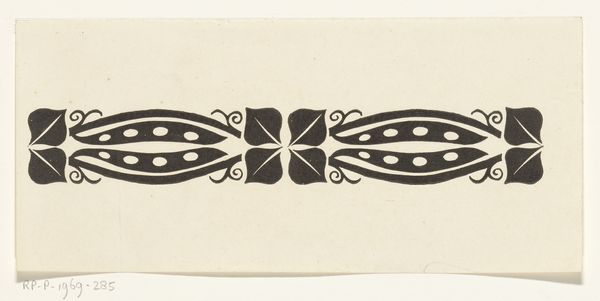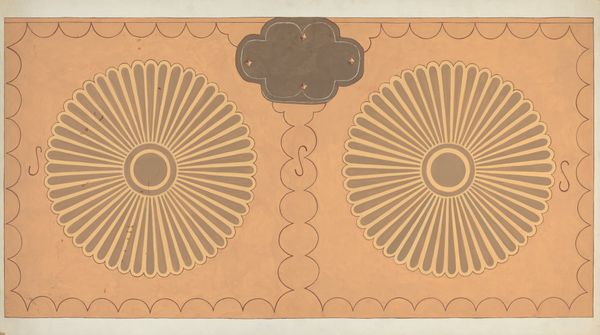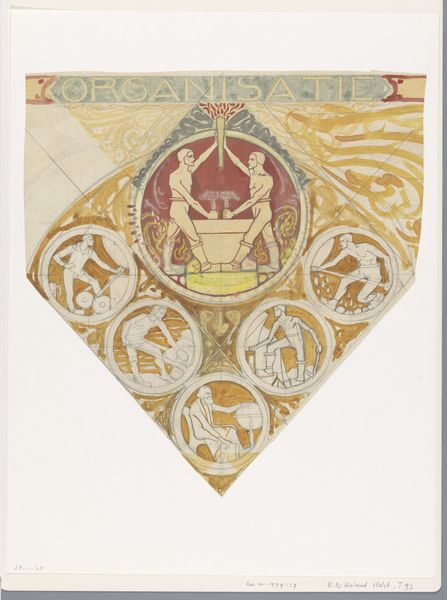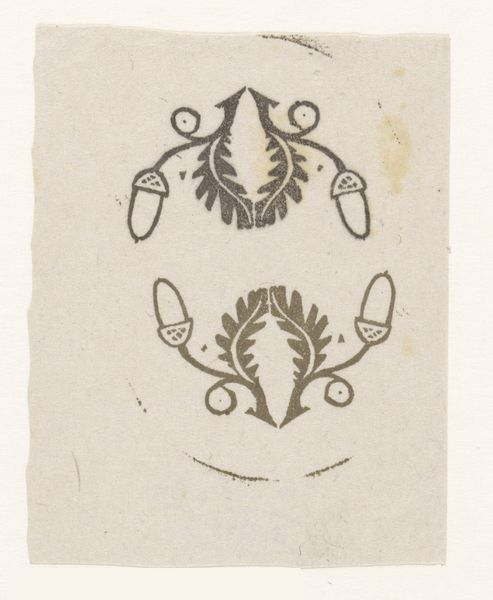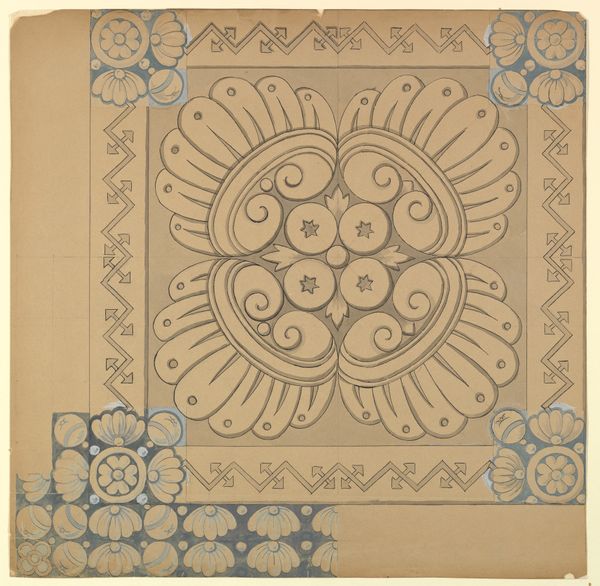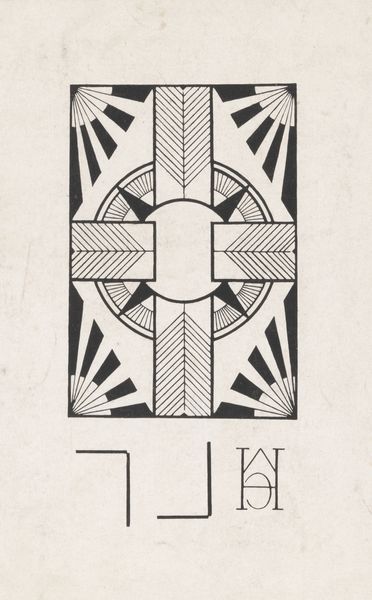
drawing, ornament
#
drawing
#
natural stone pattern
#
circular oval feature
#
naturalistic pattern
#
ornament
#
organic
#
art-nouveau
#
pattern
#
repetitive shape and pattern
#
minimal pattern
#
organic pattern
#
geometric
#
simple pattern
#
repetition of pattern
#
line
#
pattern repetition
#
decorative-art
#
layered pattern
Dimensions: height 210 mm, width 153 mm
Copyright: Rijks Museum: Open Domain
Editor: This is "Ornament," a drawing from sometime between 1884 and 1952 by Reinier Willem Petrus de Vries. I’m struck by the diamond shape and how the patterns feel both very ordered, yet organic. What visual language do you see at play here? Curator: The piece resonates with symbolic echoes that traverse time. Consider the radiating elements. Do they remind you of anything specific – perhaps sunbursts in religious iconography or heraldic crests evoking power and lineage? Editor: I see the sunburst now! And the crests—almost like simplified versions of those eagle symbols you see on old coins or flags? Curator: Precisely. Notice, also, the symmetrical arrangement. Symmetry, especially within ornamentation, suggests balance and harmony, doesn't it? But what happens when we see those hand-drawn lines, slightly imperfect? Editor: It makes it feel less rigid. More human, I guess. Like something from nature that isn't perfectly symmetrical but beautiful anyway. Curator: Exactly! Perhaps this piece speaks to a deeper dialogue: the interplay between order and chaos, the manufactured and the natural. And what emotional weight does this balance evoke in you? Editor: A sense of grounded optimism. It feels comforting because it’s familiar but also hints at something more intricate, like hidden stories within a pattern. Curator: Beautifully observed. I think De Vries captured that tension and harmony quite well. Editor: This has really opened my eyes to how patterns can carry so much more meaning than I initially thought. It’s like a visual history book hiding in plain sight.
Comments
No comments
Be the first to comment and join the conversation on the ultimate creative platform.
